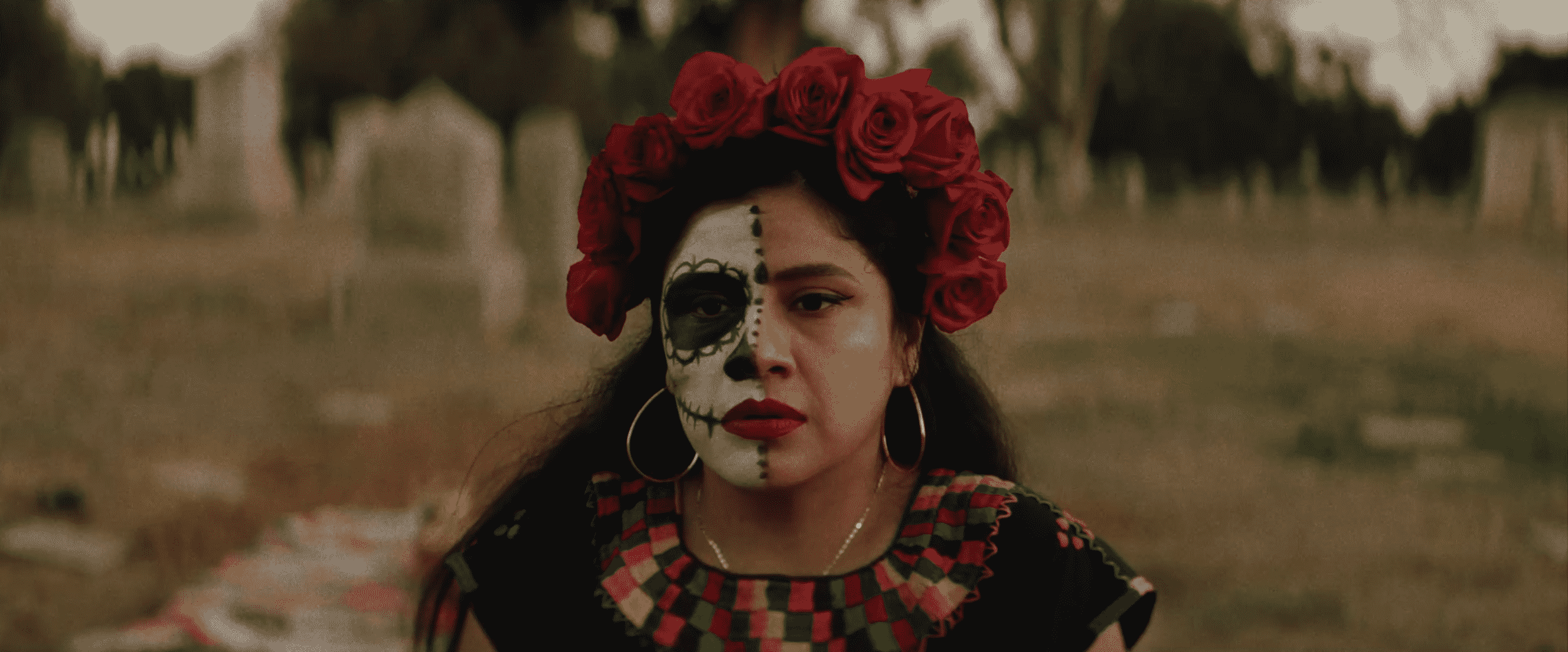
‘For Rosa’ Unravels The Madrigal Ten’s Fight For Reproductive Justice After Forced Sterilizations In California
It’s 1970. Groans of discomfort permeate a Los Angeles County Hospital hallway as a Mexican-American woman is in labor. This is going to be her first child.
Little does she know that it’ll also be her last.

“This is an example of erasure,” director Kathryn Boyd-Batstone told mitú.
For Rosa, details a harrowing reality for many women of color in 1970s California. Inspired by the 1978 Madrigal v. Quilligan case, the story follows Eva, a mother faced with the pivotal decision to join the Madrigal Ten after discovering she was unknowingly sterilized.
Wanting to highlight each individual experience, Boyd-Batstone described her heroine as “a fictional composite character” inspired by multiple plaintiffs from the Madrigal Ten.
At first glance, Eva’s story prominently resembles the experience of plaintiff Melvina Hernández.
Hernández, at 23, signed a document that allegedly consented to an emergency C-section. Fearmongering by doctors and nurses highlighted a perceieved risk of mortality, pressuring her to sign a document she couldn’t read.
Four years later, she was informed that she had actually signed for a tubal ligation.
The history of eugenics is an ugly one, acting as a form of silent genocide.
In Eva’s case, medical professionals take advantage of her. Doctors and nurses took advantage of her language barrier and the pain of child labor.
The story, while historical, is relevant in the current context of the Trump era’s immigration policies.
Last year, an ICE nurse whistleblower reported the nonconsensual mass hysterectomies of migrant women detained at the border.
In the U.S. and Canada, Indigenous women have continuously been sterilized despite pro-sterilization policies ending in the 1970s.
“Although the court case happened over fifty years ago, we are still in a time where reproductive rights are not respected,” Boyd-Batstone said. “This is not an issue of the past, and so the fight continues.”
California’s eugenics laws disproportionately targeted Latinas.
California was one of the leading states in eugenics-informed practices.
After passing a law in 1909 that allowed medical practitioners to sterilize patients, the motives of cultural erasure became clear.
Hiding behind “good medicine” were racist and xenophobic incentives aimed to eliminate potential “welfare” cases.
Under this discriminatory pretense, Latinas were 59 percent more likely to be forcibly sterilized.
The United States has an extensive history of nonconsensual medical experimentation on Black and Brown communities.
Studies like the “Tuskegee Study of Untreated Syphilis in the Negro Male,” which lasted over 40 years, in part, shaped the mistrust between the Black community and the medical industry.
A mistrust that remains prevalent in the 21st century.
The Madrigal Ten is a testament to the fight for reproductive rights and women of colors’ autonomy.
In 1975, Dolores Madrigal alongside nine other women filed a class-action lawsuit against L.A. County-USC Medical Center for the nonconsensual tubal ligations that occurred during child labor.
A complicated ordeal that received little funding, 26-year-old Chicana Civil Rights attorney Antonia Hernández impressively took on the case. Boyd-Batstone who read the court documents said, “it became obvious that at the time the hospital did not have adequate steps in place to make sure their patients could give informed consent.”
Dr. Karen Benker, the only physician to testify against the hospital, told the New York Times in 2016 that “voluntary informed consent” didn’t exist in the early 70s.
That is until after the National Research Act of 1974 following public outcry from the Tuskegee study.
Following Roe v. Wade, the Madrigal Ten case sought to end the forced sterilizations of women of color, define informed consent and provide consent forms in Spanish at a reading level individuals could understand.
In 2016 PBS released a documentary on the case called “No Más Bebes,” which greatly inspired Boyd-Batstone to create For Rosa.
“The main feeling that stuck with me after watching the documentary was how much strength it must have taken these women to face someone who tried to take their identity and demand accountability,” she said.
Validating women of color’s experiences was essential for Boyd-Batstone. While the film mirrors the malpractices of the medical industry, brought upon by systematic racism and bias, she also hopes that women who have felt “diminished or uneasy around doctors” find the courage to speak out.
For Rosa, sheds light on traditional themes of womanhood and Chicana feminism.

Simultaneously, the lawsuit took place during the rise in Chicana activism.
As tensions between mainstream white feminism and women of color peaked; Chicana activists put legislative reform and reproductive justice at the forefront. Furthermore, they brought awareness to discrimination as it intersects race, class, gender, and immigration.
Though on the sidelines, the case also harbored on the cultural question of defining femininity.
Worried for the state of her marriage, the correspondence of fertility with femininity felt dense. Heavily ingrained in machismo culture; the pain and frustration of no longer being able to conceive are palpable.
But the strength and courage to speak out defies all odds.
“As women, especially Latina women, I don’t think many stories show us how to do this,” Boyd-Batstone said. “So it was important to me to, one, honor the Madrigal Ten’s bravery but [to also] show young girls what it looks like to stand up and fight for your rights.”
Though it has been nearly 50 years since the Madrigal Ten case, the fight for women’s autonomy and reproductive rights is ongoing.

On June 7, 1978, the U.S. District Court ruled in favor of the USC Medical Center. Judge Jesse Curtis stated that miscommunication and language barriers resulted in unwanted sterilizations.
Nonetheless, the lawsuit’s impact was potent. The California Department of Health revised its sterilization guidelines to include a 72-hour waiting period and issued a booklet on sterilization in Spanish.
In 1979, California abolished its sterilization law after 70 years.
More than 20,000 people of various races and ethnicities were sterilized during this time.
For Rosa ends with archival footage of Dolores Madrigal and Antonia Hernández announcing the lawsuit. Nevertheless, its timely release is indicative of the continual demands for justice today.
Now more than ever we must remember the narratives of the Madrigal Ten, and other Black and Brown activists who continue to pave the way for change.
“My hope is that For Rosa humanizes the women so that whatever culture or race or gender you are, you can empathize with the women as human beings,” Boyd-Batstone said.
“My hope is that every person who watches understands that these Latina women are deserving of respect.”
Para Rosa (For Rosa) is available to stream on HBO Max.



